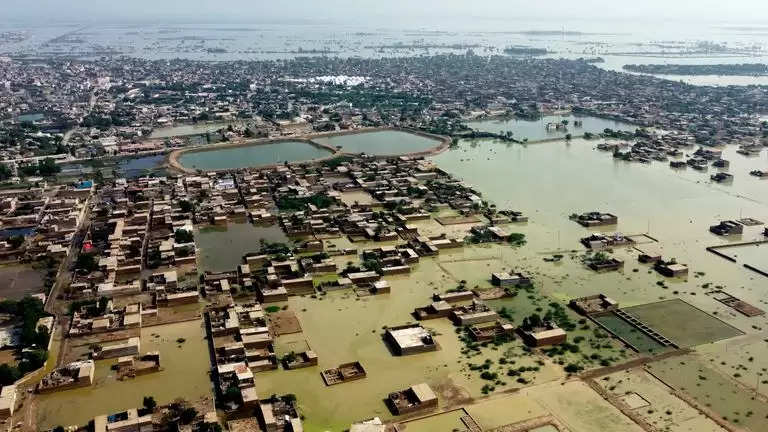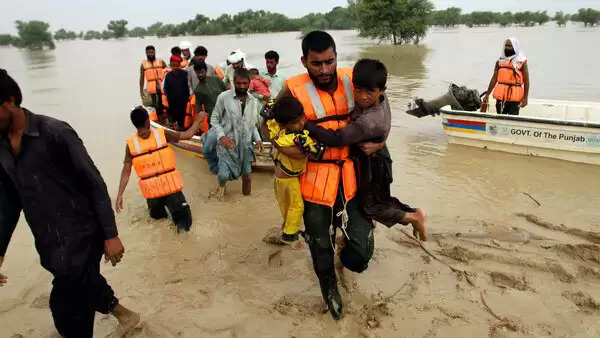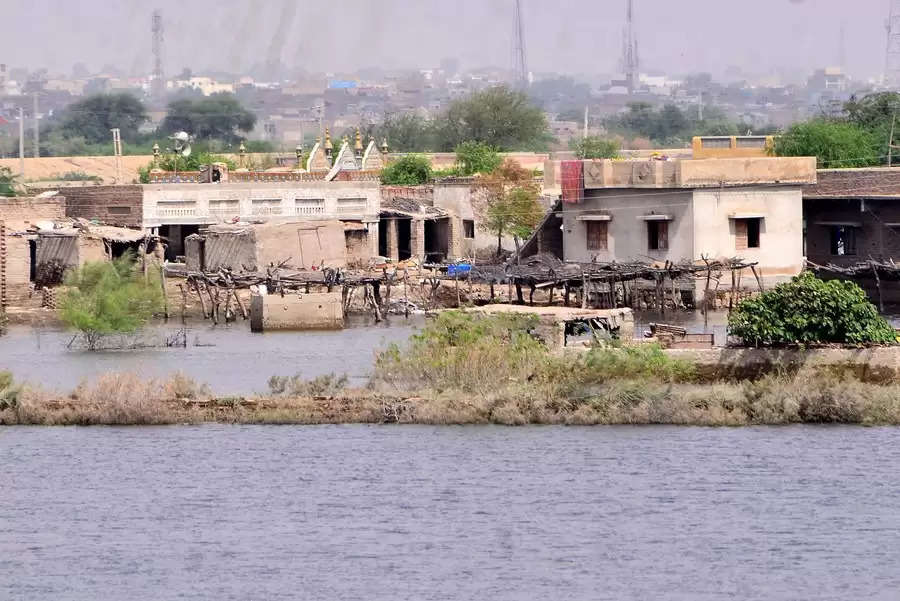The agriculture sector was destroyed due to floods in Pakistan, and food security is in danger

Islamabad, Pakistan's agriculture sector, which contributes 24 percent to the country's gross domestic product and is the largest source of foreign exchange earnings, has been damaged as the recent climate change-induced catastrophic floods have jeopardized food security and people's livelihoods, and led to disruption in agricultural exports. The floods since mid-June have damaged more than 8 million acres of crops including rice, cotton, pulses, oil seeds, and vegetables, and inflicted losses of over 320 billion PKR ($1 billion), said officials from the Ministry of National Food Security and Research, adding that the livestock sector also suffered huge losses as more than 1 million animals perished due to floods, reports Xinhua news agency. Besides agricultural and infrastructure losses, heavy torrential rains and floods have killed nearly 1,600 people, injured over 12,000, and affected as many as 33 million people to date, according to the latest statistics of the National Disaster Management Authority. As one-third of the country came underwater, the federal government has estimated the total cost of economic damage owing to floods at $30 billion, calling on the international community to assist in relief and rehabilitation efforts. Pakistani experts believe that the government should mobilize all the financial and technical resources to prevent the country from the looming food security crisis and play a vital role in getting the key sector back on track. Pakistan's agriculture sector remained crucial to the country's economic growth and development and accounted for half of the employed labor force, but the recent climate change and erratic extreme weather events have taken a big toll on the sector, Chairman of the Pakistan Agricultural Research Council Muhammad Azeem Khan told Xinhua.

"All the major crops have been destroyed across the country. Pakistan is the world's fourth rice exporter and fifth cotton exporter, but the recent floods have destroyed these crops, affecting the country's export revenue generation and global supplies," Khan said. In addition to this, he said the farming community in the country has suffered a lot, adding that the only source of sustenance for the community was their crops and livestock which they have lost substantially in recent floods. The responsibility now lies on the government to provide farmers with special incentives to cover their losses to get them back on their feet, the expert said. The loans sought by growers in the flood-affected areas should be rescheduled and interest on agriculture loans should also be written off, Khan said, adding that the incumbent government has been taking measures and adopting prudent policies to restore the community and much more needs to be done. Muhammad Azam Khan, a professor at Pir Mehr Ali Shah Arid Agriculture University in Rawalpindi, said that floods in many districts have destroyed arable lands as continuous inundation made them unsuitable for planting winter crops, especially wheat, which contributed 72 percent of the country's daily caloric intake, stressing the country could face a food crisis if pre-emptive measures are not taken. The country has already been facing a huge shortage of wheat. With the delay in planting time due to flood water and land degradation, Pakistan could face a severe dearth of wheat and other winter crops, he told Xinhua.

"Dewatering of flood-affected parts of the country should immediately start ... any lapse will have consequences for sowing of winter crops, particularly wheat. Also, the government should import more wheat to overcome shortages."He said that growing crops that were planted since the onset of the monsoon season such as rice, cotton, pulses, fodder, onions, tomatoes, and other vegetables have either been washed away or damaged due to flood water, so now the focus should be on planting winter crops to ensure food security and cut import bills. In a conversation with Xinhua, Syed Waseem-ul-Hassan, food security commissioner at the Ministry of National Food Security and Research, said that countries in South Asia including Pakistan have become hotspots for climate change-related extreme weather events, stressing that flood-led disasters have increased in frequencies and magnitudes in recent decades. Highlighting the disproportionate impacts of climate change on poor countries, the official said Pakistan is bearing the brunt of climate change despite having a share of less than 1 percent of the world's carbon emission. A compensation mechanism at a global level should be introduced to help developing nations that are facing huge losses due to climate change impacts, he added.
